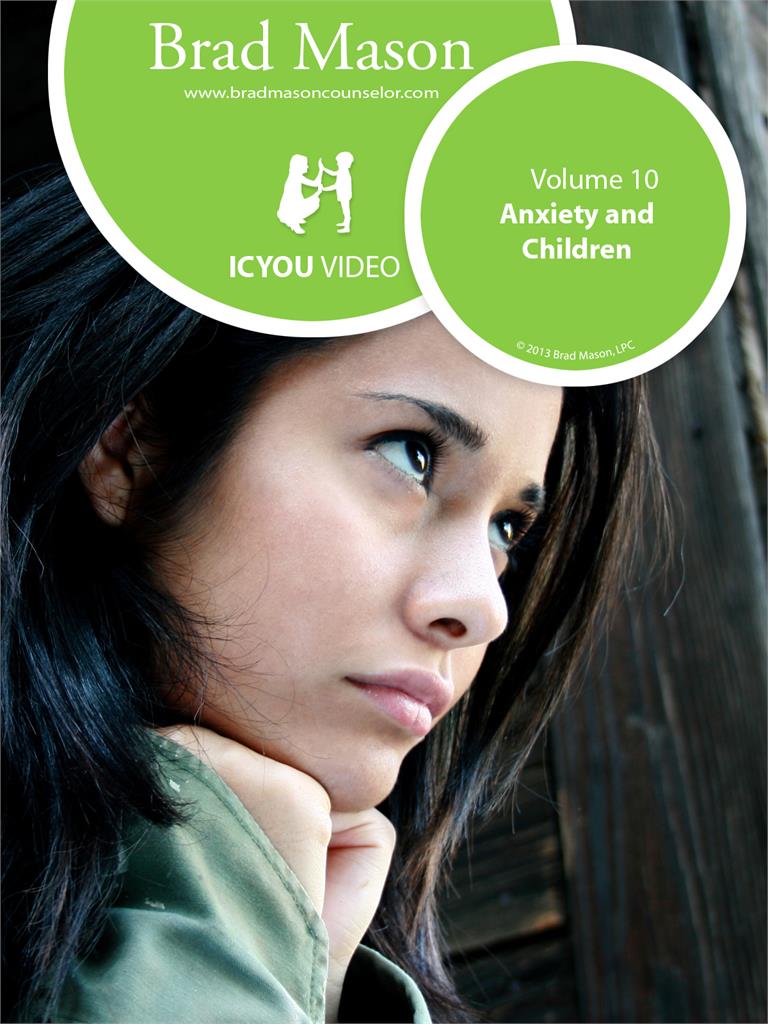Resources for Anxiety Video
Books
Adler, A. (1992) Understanding Human Nature. Oxford, England, Oneworld Publications. <Outlines the inferiority complex and potentially the source of much human anxiety, recommended for braniacs>
Allen, J. and Klein, R. (1996) Ready, Set, Relax. Watertown, Wisconsin, Inner Coaching. <Good scripts for progressive muscle relaxation>
Attwood, T. (2008). The CAT-Kit. Future Horizons, Arlington, Texas. <Great resource for therapists for helping concrete thinkers, boys and men identify and sort through feelings>
Attwood, T. (2004) Exploring Feelings, Cognitive Behavior Therapy to Manage Anxiety. Arlington, Tx, Future Horizons, Inc. <Excellent workbook for teaching kids aged 8-40 thinking skills for managing worries>
Avery, R. (2008) Meet Thotso, Your Thought Maker. SmartThot, LLC. <Introduces the power of thought in creating and mediating emotional responses for very young children ages 2-8>
Buron, K. D., & Curtis, M. (2003) The Incredible 1-5 Scale. Shawnee Mission, KS: Autism Asperger PublishingCompany. <This is a must-have resource if you work with someone who has trouble recognizing, grading, and expressing emotional states!>
Buron, K. D. A “5” Could Make Me Lose Control! Autism Asperger Publishing Company, Shawnee Mission, KS. www.asperger.net <This can help even very young children (3) identify stress triggers>
Buron, K. D. (2006) When My Worries Get Too Big. Shawnee Mission, Kansas, Autism Asperger Publishing Company. <Cute workbook in the flavor of the previous two>
Cox, A. (2008).No Mind Left Behind. New York: Penguin Group. www.dradamcox.com
like the next on this list, helps you understand how to teach the thinking skills needed to have emotional control and flexibility>
Dawson, P. and Guare, R. (2009). Smart But Scattered. NewYork: Guilford Press. <This would be my current bible of executive skills, brain ways of self-control that are teachable. Superior resource.>
Dyer, W. (1995) Your Erroneous Zones. New York , NY, Avon Books. <Written more for adults and full of great ways to defeat worry>
Forman, S. (1993). Coping Skills Interventions For Children
and Adolescents. San Francisco, Jossey-Bass Publishers.<Great review and description of research-based strategies>
Goleman, D. (1995) Emotional Intelligence. New York, NY, Bantam Books.
Moser, A. (1988) Don’t Feed The Monster On Tuesdays, also Don’t Pop Your Cork On Mondays. Kansas City, MS, Landmark Editions, Inc.
Niner, H. (2004) Mr. Worry, A Story About OCD. Morton Grove, Ill., Albert Whitman and Co. Shapiro, L., Sprague, R. (2009)
The Relaxation and Stress Reduction Workbook for Kids. Oakland, CA, New Harbinger.
Games
Don’t Stress Game
(6-12) Childswork/Childsplay
Land of Psymon
(8-up) Western Psychological Services
My First Therapy Game
(6-12) Childtherapytoys.com
The Talking, Feeling, and Doing Game
(4-15) Creative
Therapeutics
Moods
-( teen/adult ) Hasbro
Websites
